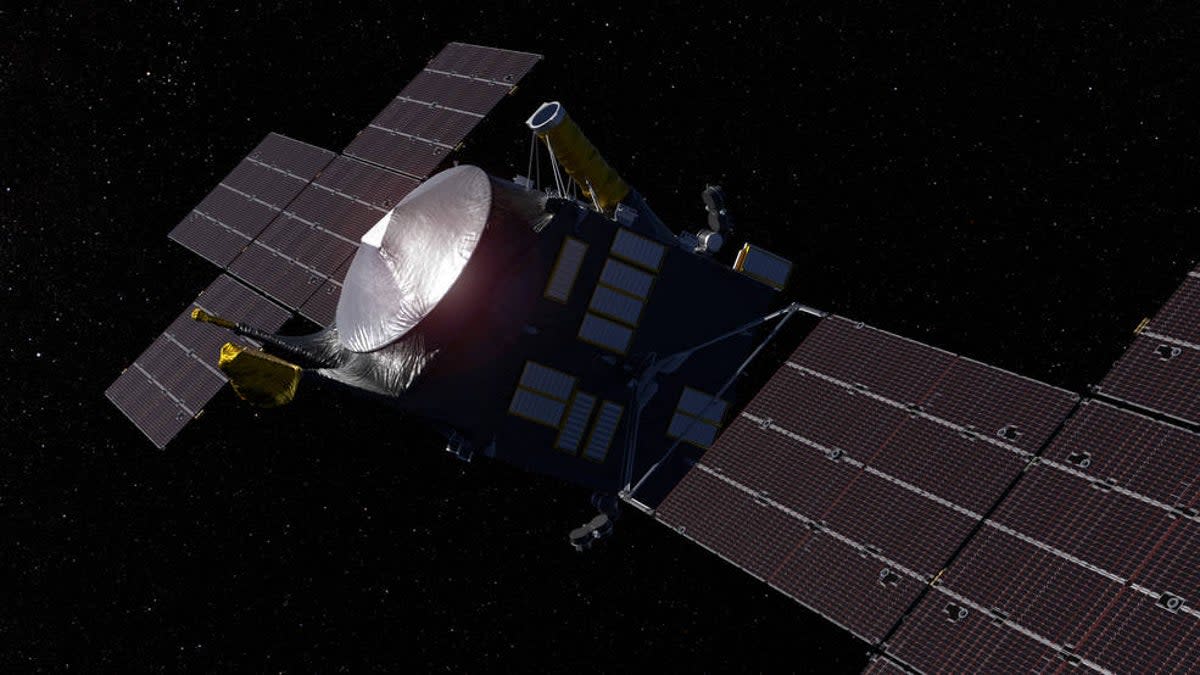Nasa’s mission to asteroid Psyche rescheduled for fall 2023

Nasa’s delayed Psyche mission to a strange metallic asteroid has been rescheduled to launch sometime in October 2023, the space agency announced Friday.
The Psyche spacecraft was originally scheduled to launch in September, but Nasa put the mission on hold in June after officials realized specialized navigation software being developed by Nasa’s Jet Propulsion Laboratory would not be ready in time for a 2022 launch window. Nasa announced the new launch schedule Friday after an investigation by an independent review board into the causes of the delay.
“I appreciate the hard work of the independent review board and the JPL-led team toward mission success,” the associate administrator of Nasa’s Science Mission Directorate, Thomas Zurbuchen, said in a statement. “The lessons learned from Psyche will be implemented across our entire mission portfolio. I am excited about the science insights Psyche will provide during its lifetime and its promise to contribute to our understanding of our own planet’s core.”
The small car-sized Psyche spacecraft will target the asteroid of the same name, which orbits the Sun in the main asteroid belt between the orbits of Mars and Jupiter. Scientists believe the highly metallic asteroid could be the naked core of a protoplanetary body, a planet that never fully formed, and could therefore give researchers a glimpse at the internal structure of rocky planets usually hidden by miles of rock.
The Psyche spacecraft was originally intended to reach its namesake asteroid in 2026, after traveling more than 1 billion miles. The new launch schedule will bump that rendezvous to sometime in August 2029, following gravity assist maneuver around Mars to pick up speed in 2026.
Psyche will be the latest in a suite of Nasa asteroid missions. The Osiris-Rex spacecraft is on its way back to Earth with samples from near-Earth asteroid Bennu taken in 2020, while the Lucy mission to the Jupiter Trojan asteroids swung by Earth for the first of three gravity assist maneuvers in its 12-year mission on 16 October.
And on 26 September, Nasa’s Dart, or Double Asteroid Redirection Test, slammed a spacecraft into the small asteroid Dimorophos to change its orbit, proving in principle that such a mission could change the orbit of an asteroid threatening Earth.
